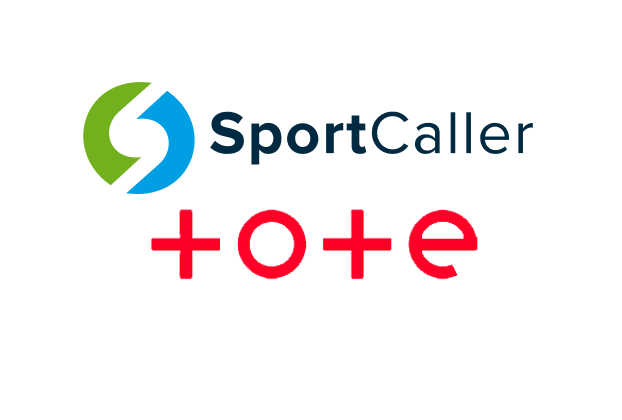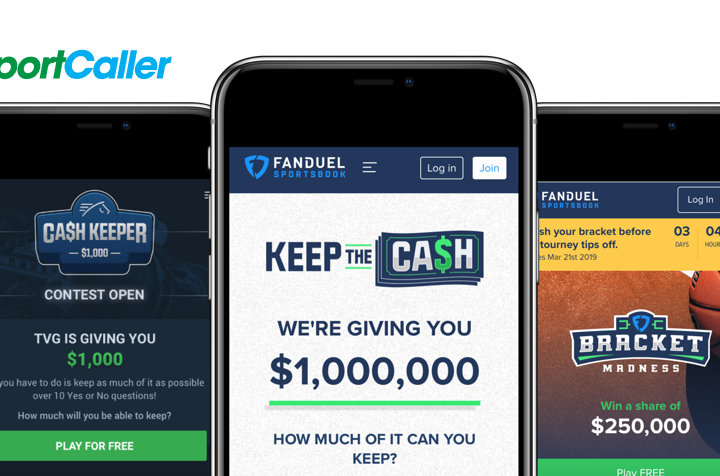The Grand Parade founder chats to EGR Marketing about the challenges of scaling up a B2B egaming business
Free-to-Play (FTP) games specialists SportCaller appointed Grand Parade founder Andy Clerkson as its first ever chairman in September. Clerkson founded technology agency Grand Parade in 2007 before selling to William Hill in 2016. He has since helped Hills expand into newly-regulated states in the US throughout 2018. William Hill hailed the acquisition benefits of its partnership with SportCaller in March after integrating with the firm’s Lucky7 horse racing game and Football21 prediction game.
The firm has also established a working relationship with GVC and Paddy Power Betfair as FTP games have become an increasingly popular method for operators looking to boost their retention efforts.
Here, Clerkson chats to EGR Marketing about why he’s decided to join the SportCaller board.
EGR Marketing: How did you get involved with SportCaller?
Andy Clerkson: I worked them on a few projects at my tech company Grand Parade, and then when I moved over to William Hill, SportCaller had just been employed to create the ITV 7 racing game. As I knew Sportcaller, I took over that relationship. We had to create a new product satisfying two companies – ITV and Hills – all in a few weeks of course. Sportcaller delivered without drama. I’ve long admired their sensibilities and approach and always thought the product was very smart. If they are asked to do something, they get it done on time with quality, which is a brilliant start.
EGR Marketing: Why have SportCaller brought you on board?
AC: The main target is scaling up the business. They almost doubled the number of clients in 2018. Significantly, over the World Cup, their games were enjoyed by a million players across different operators. Since that tournament, they have nearly doubled the amount of games released and are now active in over 20 countries.
They have a fantastic strategic and account teams in Dublin and an experienced development team in Ukraine. However, there are points within any period of growth where you take significant jumps. Managing that acceleration is always a pain point for small-medium size business.
At Grand Parade, I oversaw a comparable transition from just four staff to 30 in the first four years and then 30 to 250 over the next three years. At the pint when you need someone in HR you’ve got a different business on your hands, and having experience to you govern that process both corporately and strategically is handy. So it’s great to be back in a position where I can leverage that experience in conjunction with some inspiring colleagues.
EGR Marketing: How else can your experience at Grand Parade help SportCaller?
AC: I have a decent contact book. Grand Parade had operated globally for the last few years, spanning out of Europe to Australia and the US.
Also I have worked with and within the marketing departments of many operators. FTP forms a crucial part of acquisition and retention strategies now, but the main question isn’t how do you build a compelling game, it is how do you understand the value and interpret the data offered by all these players? Some of Sportcaller’s clients are very sophisticated but some are less so and I can help Sportcaller clients understand how to maximise their relationship with their FTP customers.
EGR Marketing: This week SportCaller also launched Beat The Drop with PPB. Tell us about your hope for the game?
AC: Beat The Drop is the most exciting, development in our ongoing relationship with the Paddy Power Betfair group. This free-to-play game turns the tables on the customary operator-customer relationship by giving the customer their winnings up front. Players can “split the pot” or “bet the lot” by backing their footballing judgement across a series of coin-toss questions. This is a completely new development in the arena of FTP and the first SportCaller product which players can also pay to play. We soft-launched Beat The Drop prior to the World Cup, and it eclipsed targets for the tournament after just one week. This will form a key part of the PPB growth strategy into new territories and across a greater variety of sports in the coming months.
EGR Marketing: How did the World Cup go for you, and how has is set you up for the current club campaigns – please cite some key stats to support your answer?
One of the reasons I joined SportCaller was because this is a venture ably supported by the numbers. The FTP value proposition for operators – the ability to acquire players in great numbers at low cost – is clear and provable. The games acquire customers without the need for bonusing, and the best ones become habit-forming, because they are simple and can fit into a daily or weekly pattern and this offers great retention metrics. With smart customer journeys, the games readily transfer through to increased betting activity, which is all tracked to highlight conversion rates and lifetime customer value. With this in mind, SportCaller ran nine games over the World Cup, attracting players across 11 languages and 22 countries globally. Over 750k players were delivered across all games with a register-to-play conversion rate of 82%. This success was heavily mobile with 85% of game players participating via smartphones.
Post-World Cup, SportCaller continue to operate games across multiple territories and on multiple sports. In weekly Free To Play games, 70% of game players return to play the next game – a figure which ramps to over 80% when daily games are run on higher profile events. Clients need to see these players convert to real money, so our designers and dev teams are constantly evolving new and stronger personalised bet-prompts based on the selections players have made in the free game. On average, 35% of players click through these bet prompts, with 20% converting to bet.
EGR Marketing: Nowadays, betting stakeholders are placing a higher premium on margin and market cost savings. Could FTP dynamics spell an end to the old offer / bonus culture?
AC: Well, those 20% of players who have converted (above) have not been acquired on the back of a £30 free bet, so yes. Bonuses and enhanced odds have become such a race to the bottom that the industry needed a new dynamic. FTP is belatedly unveiling a third way.
Your question is also timely as it’s not just a case of cost savings. It’s also about regulatory control, particularly regarding the mechanics of sign-up bonuses and free bets. Whilst this is ostensibly good for the customer, it makes it much tougher for operators to control the costs to their business from potential carpet-baggers, not to mention the operational costs of such profiling. Operators can now enjoy total access to all their user data via a secure API, off which they can effortlessly run email campaigns alongside other push communication, elevating the UX through real-time scores and event updates. Every aspect follows GDPR guiderails, which provides complete peace of mind to our partners in an unforgiving regulatory landscape.
EGR Marketing: How will your relationship with SportCaller MD Cillian Barry work?
AC: First, I want to provide Cillian with some meaningful back-up. I know what it’s like growing a company and you need people around you that you can trust and rely on. He can bounce ideas off me, and I can help create the confidence we all sometimes need to be able to push forward. It’ll be fun. SportCaller is already a very strong business. They have a bunch of amazing clients and the demands from those big operators will likely keep on coming. The free-to-play market has exploded and SportCaller is driving innovation in the sector, so the potential for further global growth is huge. Not least following the repeal of PASPA in the U.S., where tricky challenges (notably geo-restriction by state) afford a head-start to SportCaller’s pioneering geo-location tools in the cavalry charge for expansion stateside. I can take on a little of this combined load for Cillian.
Link to article on EGR (subscription based)


